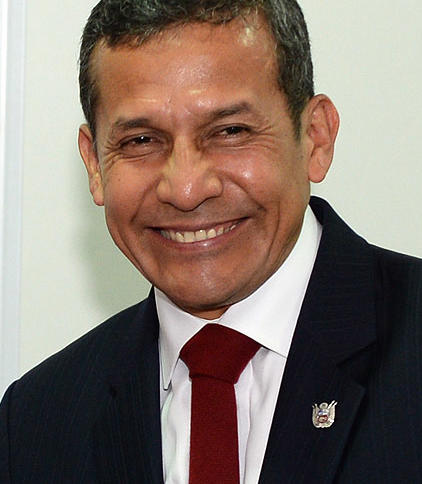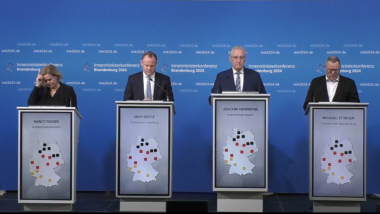Per Dekret hat der peruanische Präsident Ollanta Humala seinem Land eine weitreichende Vorratsdatenspeicherung verordnet. Grundlage dafür ist eine vom Kongress ausgestellte Vollmacht, die es der Regierung erlaubt, eigenhändig Gesetze zu erlassen, um die öffentliche Sicherheit zu schützen und gegen Kriminalität vorzugehen.
The Peruvian President today adopted a legislative decree that will grant the police warrantless access to real time user location data on a 24/7 basis. But that’s not the worst part of the decree: it compels telecom providers to retain, for one year, data on who communicates with whom, for how long, and from where. It also allows the authorities access to the data in real time and online after seven days of the delivery of the court order. Moreover, it compels telecom providers to continue to retain the data for 24 more months in electronic storage. Adding insult to injury, the decree expressly states that location data is excluded from the privacy of communication guaranteed by the Peruvian Constitution.
Um aus den Daten gewonnene Informationen vor Gericht verwenden zu können, muss eine richterliche Genehmigung vorliegen – die allerdings erst im Nachgang eingeholt werden muss. Dass das kaum vor Missbrauch schützen wird, erklärte der Anwalt Erick Iriarte dem Guardian gegenüber:
Digital rights attorney Erick Iriarte said that did not offer much protection because while a judge “could revoke the use of the data, [if I am the police] I already have the data”.
The so-called metadata covered by the decree included “where you are making a call, the time and who you are talking to”, and that was an invasion of privacy, Iriarte said.
He said he was very concerned over which branches of Peru’s police would have custody over and access to the information.
The decree specifies a “special unit” but Peru’s national police force is plagued by corruption, with sensitive information regularly leaked for political reasons and sometimes shared with criminals.





Die haben weitaus schlimmere Probleme und Sorgen als die VDS. Ist doch eh son armes Land wo sowas kaum einen bekannt sein wird bzw. die Tragweite und interessieren wird es wohl auch keinen. Nichtsdestotrotz und wie schon zig mal an Netzpolitik geraten und gebeten, aber es hat sich nach wie vor nichts getan in der Hinsicht, nämlich gegen die VDS diverse VPN Anbieter empfehlen, muss ich es MAL WIEDER machen …
https://torrentfreak.com/anonymous-vpn-service-provider-review-2015-150228/
In Peru leben die ja alle mit ihren Ziegen in den Bergen, da gibt es keine Zeitungen und Internet hat sowieso nur die Präsidentenfamilie!!1
Zu so einem dumm-dämlichen Kommentar kann man einfach nur sagen „Zigfach überflüssig“. Wer durch diese Arroganz zum Ausdruck bringt dass er -in diesem Fall von Peru – keine Ahnung hat, der soll doch einfach seine Schnauze halten.
Für alle anderen zur Information: In Peru gibt es ein weit ausgebautes Handy-Netz bis in viele Dörfer hinein. Insbesondere die junge Generation nutzt die sozialen Medien wie wir hier in Deutschland. Die Gründe die in Deutschland gegen die Vorratsdatenspeicherung gelten auch in Peru.